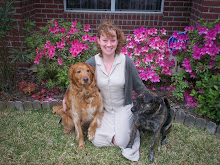
Touching Snow is the story of Karina and her Haitian immigrant family during the summer between her 7th and 8th grade years. I was completely caught up in the story from page one and devoured the book in one sitting. Karina's extended family, including a stepfather, work very hard to live in "New York Country," but they hang on to a lot of what they were trying to escape in Haiti. The stepfather is the biggest problem. He beats Karina and all her sisters severely. The oldest sister, Enid, is beaten near death at one point. The police are eventually called, but much to the mother's dismay and no one is allowed to tell the truth because how would they survive without the stepfather there? To finally end it all, the girls "accidentally" kill their stepfather and set it up to look like an accident. Issues such as complex family relations, acclimation to a new country/culture and the pains of growing up anywhere are dealt with eloquently. The reader becomes a part of the story.
A lot of times, as teachers, we encounter student with families and home lives that we don't understand. We think of people as "bad" when judging them by our own standards. Reading this book gave me a new appreciation for what may be going on behind the scenes and the subtle cries for help that often go unnoticed.






